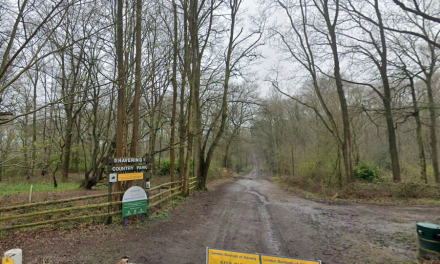Melody Williams, a care director from North East London NHS Foundation Trust (NELFT), gave evidence on Tuesday (November 28) in the inquest of Amarnih Lewis-Daniel.
Mrs Williams was the final witness to give evidence before jurors, who were set to begin their deliberations after coroner Nadia Persaud gave them legal direction on Wednesday morning (November 29).
Jurors have heard how Amarnih, a 24-year-old transgender woman, repeatedly came into contact with police and mental health workers in early 2021, as her mental health deteriorated.
But despite her increasingly erratic behaviour, no agency made a mental health referral.
On March 17, 2021, she was found dead in the car park of Highview House, Chadwell Heath, as a fire burned in her seventh-floor flat above.
On Monday, November 27, expert forensic psychiatrist Dr Duncan Harding testified that NELFT staff had failed to make referrals on two occasions when he would have considered it “urgent” and “essential”.
Had these referrals been made, he said, it was “possible” that Amarnih’s death “could have been avoided”.

On Tuesday, Mrs Williams testified that the trust had conducted a “serious incident investigation” and made several improvements.
East London Coroner’s Court heard last week how in late January and early March, Amarnih had been visited by two different custody nurses, employed by NELFT, after two different arrests.
Each had access to her medical records and could therefore see she was known to NELFT for conditions including anxiety, depression, gender dysphoria/incongruence and traits of emotionally unstable personality disorder.
But when she refused to participate in mental health assessments in the cells in Barking, they simply logged their interactions on a database without making referrals for further assessment.
Mrs Williams testified that if the same thing happened today, a referral would be made “automatically”.

The inquest has also heard how Amarnih was arrested in January 2021 after she barricaded herself in her flat, smashed her windows and threw furniture onto parked cars below.
Her mother called NELFT’s Autism Spectrum Disorder (ASD) service, where Amarnih was on the waiting list for an assessment, to raise concerns about her mental health.
The court was told she was wrongly assured that other services were already looking into it.
The psychiatrist who took the call testified that she never made a referral because she assumed the custody nurses had already done it. She told jurors she had not properly read the custody nurses’ notes due to “the pressures of work”.
Mrs Williams testified that the ASD service had been “extremely small” and had “insufficient capacity” at the time, but has since been expanded.
However, she added: “Whilst the service has grown, so has the number of people referred to that service, so at this point in time we are not making massive improvements in the waiting times.”

Dr Harding had testified that in his view, Amarnih would have benefitted from a scheme known as the “care programme approach” (CPA), whereby a patient is given a care coordinator who stays in touch with them and monitors all of their interactions with different mental health services.
A consultant psychiatrist had testified previously that Amarnih’s mental health was not deemed severe enough to make her eligible for the CPA scheme.
Dr Harding told jurors this had left Amarnih “bouncing between services” at NELFT and her “complex” set of mental health issues “impossible” to unpick.
Mrs Williams testified that since major changes at NELFT, the CPA scheme had been replaced with a new system called “Dialogue”.
Dialogue “has the same degree of care coordination that the CPA has but it’s not as restrictive”, Mrs Williams told jurors.
Mrs Persaud asked Mrs Williams whether, under this new approach, Amarnih would have been eligible for a care coordinator.
“Yes,” she testified. “I think now somebody with that sort of history, whereas they wouldn’t have qualified for CPA previously, would now be able to access that.”
However, some issues raised during the inquest remained unresolved.

The court heard that Amarnih’s juvenile mental health records appear to be missing.
Amarnih was also noted to have behaved erratically at Barkingside Magistrates’ Court in early March 2021, but this information was unknown to NELFT because the court mental health services were delivered by a different organisation.
Amarnih’s risk assessment was also not updated despite a series of incidents demonstrating her “escalating” behaviour in early 2021.
Mrs Williams said risk assessments could not be completed if Amarnih did not cooperate with assessors.
“It does require a more detailed conversation because there are a number of sections of the risk assessment,” she testified.
The trust also remains unable to provide any assistance with gender dysphoria/incongruence.
“It’s an extremely niche part of the NHS provision,” said Mrs Williams. “NELFT is absolutely not commissioned to deliver anything within a gender identity pathway.”
Meanwhile, the court heard on Monday that waiting lists for gender clinics currently average seven years.
Catch up on our exclusive, in-depth coverage of the Amarnih Lewis-Daniel inquest:
Join the exciting world of cryptocurrency trading with ByBit! As a new trader, you can benefit from a $10 bonus and up to $1,000 in rewards when you register using our referral link. With ByBit’s user-friendly platform and advanced trading tools, you can take advantage of cryptocurrency volatility and potentially make significant profits. Don’t miss this opportunity – sign up now and start trading!








Recent Comments